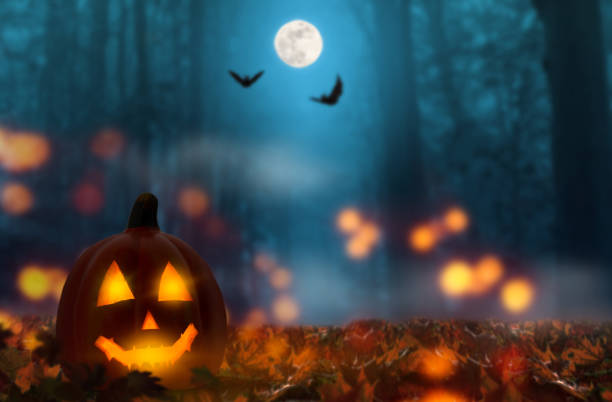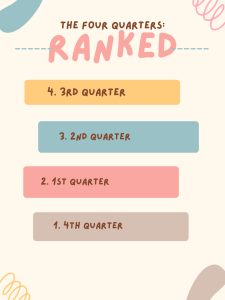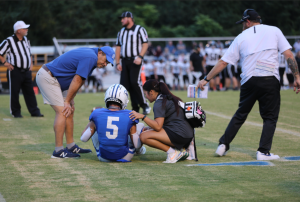The Origin of Halloween
jack lantern in the halloween night
October 27, 2020
Have you ever wondered why we celebrate Halloween? Or why we dress up in spooky, or not so spooky, costumes? Or even why candy is given to those who dress up? Well I am here to tell you about the origin of the spooky and scary holiday that is Halloween.
According to History.com, the ancient Celts who lived in what is now modern day Ireland, England, and Northern France had a holiday called Samhain. This was celebrated at the end of the fall season, just before winter. During this time, they believed that the spirits of the dead came back to life, and the difference between the living world and the dead world became blurred. For this celebration, they created a giant bonfire where they sacrificed animals and crops to appease these spirits.
It was also believed that the presence of these spirits made it easier for the Druids (sort of like Celtic priests), to tell fortunes. The Druids would wear costumes made up of animal skins and heads to help channel these spirits to give fortunes.
By the ninth century, Christianity had spread into the Celtic regions and started to mingle with the older customs, eventually blending in and even replacing older rituals. Around the same time, the Christian All Martyrs Day, which celebrated the fallen Christian martyrs, was moved from May 13 to Nov. 1, and the name was changed to All Saints Day and was rewritten to honor all Christian saints. This day was also called, All-hallows or All-hallowmas because the saints were “hallow” (not hollow), meaning “holy.” Eventually, Samhain was renamed “All-Hallows-Eve,”due to it being the day right before All Saints Day and, of course, it got shortened to what we now call Halloween.
The costumes that are worn were due in part because of the spirits of the dead coming back to the land of the living. People wore costumes so that spirits would not recognize them and think that they were also a spirit. It was also because of this that people put bowls of food outside their door, so that spirits would be warded away. This slowly evolved over time from food to candy, and then trick or treating came into existence. The phrase “Trick-or-Treat” came from those asking for “treats” (candy). If they were not given any, they would then “trick” (an old word for causing mischief) the owner of that house for not giving them candy.
This holiday was inspired out of an ancient ritual of the Celts to ward off the spirits of the dead with sacrifices and crops in order to survive the winter. With the influence of Christianity, it evolved into All Hallow’s Eve due to the celebration being the day before the Christian All Saints Day. Because of this evolution, we have a spooky night of trick-or-treaters, parties, costumes, and candy in honor of the spirits of the dead.








